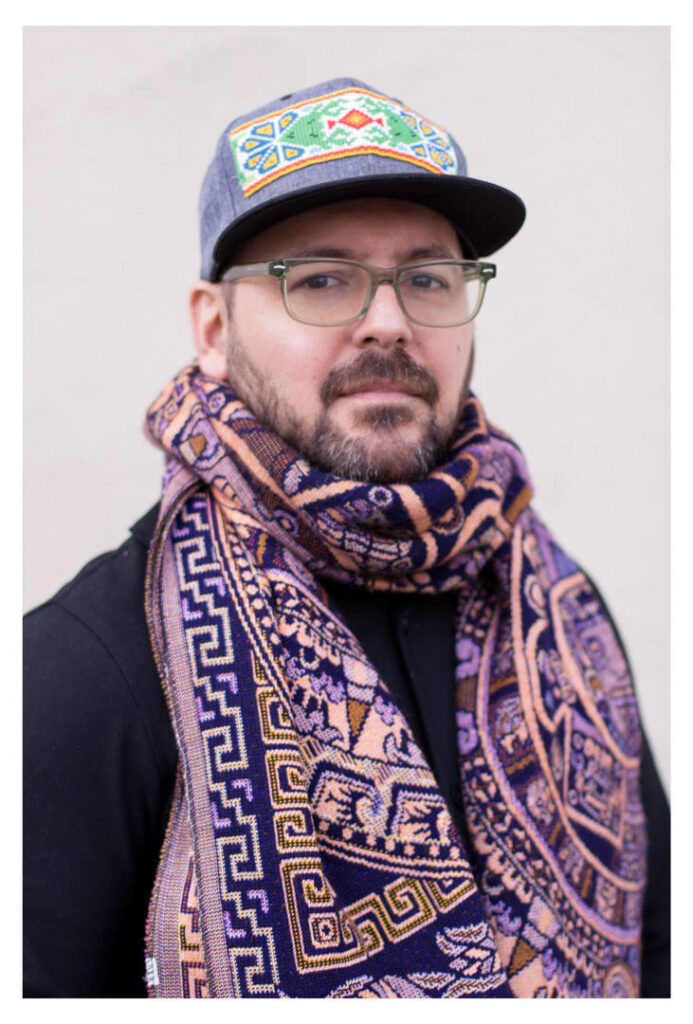
Listen to a certain librarian and you might find the help you need for successful re-entry. And you’ll find it at the local library. Just like Enrique Rivera – who eventually became a librarian himself – did.
His story highlights the many services that libraries can provide. If only more people knew about them and took advantage of the opportunities that don’t cost anything to use, there might be more success stories like his.
Enrique Rivera was incarcerated in 1998 as a teenager for a gang-related crime. After 10 months in county jail, he was transferred to McLaren Youth Correctional Facility in Woodburn, Ore., where he spent the next five years.
During that time, he earned his high school diploma and college credits from Chemeketa Community College in Salem, Ore.. Upon release, he transferred to Portland Community College and then was accepted to Portland State University, where he finished his bachelor’s degree in Spanish language and literature.
Local librarians helped him succeed
Along the way, however, he needed to learn how to apply to college and prepare for a job. And it was his uncle who steered him in the right direction.
“The very first weekend I got out I was staying with my uncle who turned me on to the Belmont Branch (in Portland’s Belmont Neighborhood),” he says. “It was the first time I had ever stepped foot in a library in my life. I went there and was able to use my DOC (Dept. of Corrections) ID which was embarrassing because I had just gotten out. I thought they would have a negative view, but they treated me as a person. That wasn’t something I was used to. Especially since the staff at the facility could be somewhat derogatory,” he says. “I felt more welcome at the library.”
“A librarian said, ‘Hey do you need some help?’ She got me a library card and helped me get into the Portland Community College website to sign up for classes. I wasn’t that literate with computers, so she also helped me get set up with Microsoft Word to print out my resume. I printed out 30 copies and walked up and down Hawthorne Ave., where I got a job at Cha Cha Cha (a local Mexican restaurant).”
Enrique Rivera visited his local library branch to use the computer to do his homework and use the printer. He would also get books on what he was studying from the county’s central downtown branch, which is located near Portland State University. It became, as he calls it, a reentry sanctuary – a genuine refuge.
Enrique Rivera became a librarian himself
After he finished his BA degree, Rivera got jobs working at warehouses and then a nonprofit that taught people Spanish. He applied for a job at Portland’s Multnomah County Library, but it took a year to get an interview. Rivera started as a page, putting books on the shelves, and worked himself up to being an outreach specialist. That position included providing jail and reentry services, as well as working with Spanish speaking immigrants, refugees, indigenous Americans and people experiencing homelessness.
As part of his job at the library, Rivera helped facilitate reference by mail, a service that answers questions posed by people in prison. In 2022, Multnomah County Library took over the Oregon part of the service from the San Francisco Public Library, which had been covering the state’s facilities up until then.
Rivera also set up a library resources class that focused on all the services Multnomah County Library could provide – adult literacy support, including GED preparation and adult tutoring; job search and resume assistance, such as classes and one-on-one appointments; and technology support that included tech help sessions, computer classes and one-on-one assistance available at the library. At the end of each class, the students received a complimentary book of their choice and a library card.
The reason Rivera helped create this course was, as he says, “I really wanted to pay it forward. Getting out is tough, it’s a whole new world – almost literally if we think in terms of technology. So I kept this in mind when thinking of relevant services to highlight in our library resource sessions.”
He left the Multnomah County Library in August for a new position.
Incarceration provided insight
His experience being incarcerated provided insight to Rivera in his role as a librarian who could help those in reentry.
“I probably wouldn’t have paid attention to folks in custody if I hadn’t been incarcerated,” he says. “Growing up, it was almost an expectation for me to be incarcerated. Most of the people I knew went to prison, as did a lot of their parents. If I hadn’t been incarcerated, I would have never realized what libraries can do.”
And Enrique Rivera has advice for people in reentry on how they can effectively use library services.
“Go, ask for help. In particular the folks who have low digital literacy can go to the library and get one-on-one tech help. They’ll go through your phone and help you figure it out. They’ll assist you with a resume. They can help you with applying for a job,” he says.
Various branches of the Multnomah County Library offer drop-in tech sessions in Chinese and Russian and job search sessions in Spanish. Although people are encouraged to go to the drop-in sessions, if they couldn’t make it he would organize a one-on-one appointment at a time or branch that would work for them.
Among the thousands of library card holders, only a fraction know about the many services the libraries provide. So, if you’re not digitally up-to-date, need help with your job search or want to learn specific computer skills, take Rivera’s advice and visit your local library. You might be surprised at what helpful librarians are willing to do.


